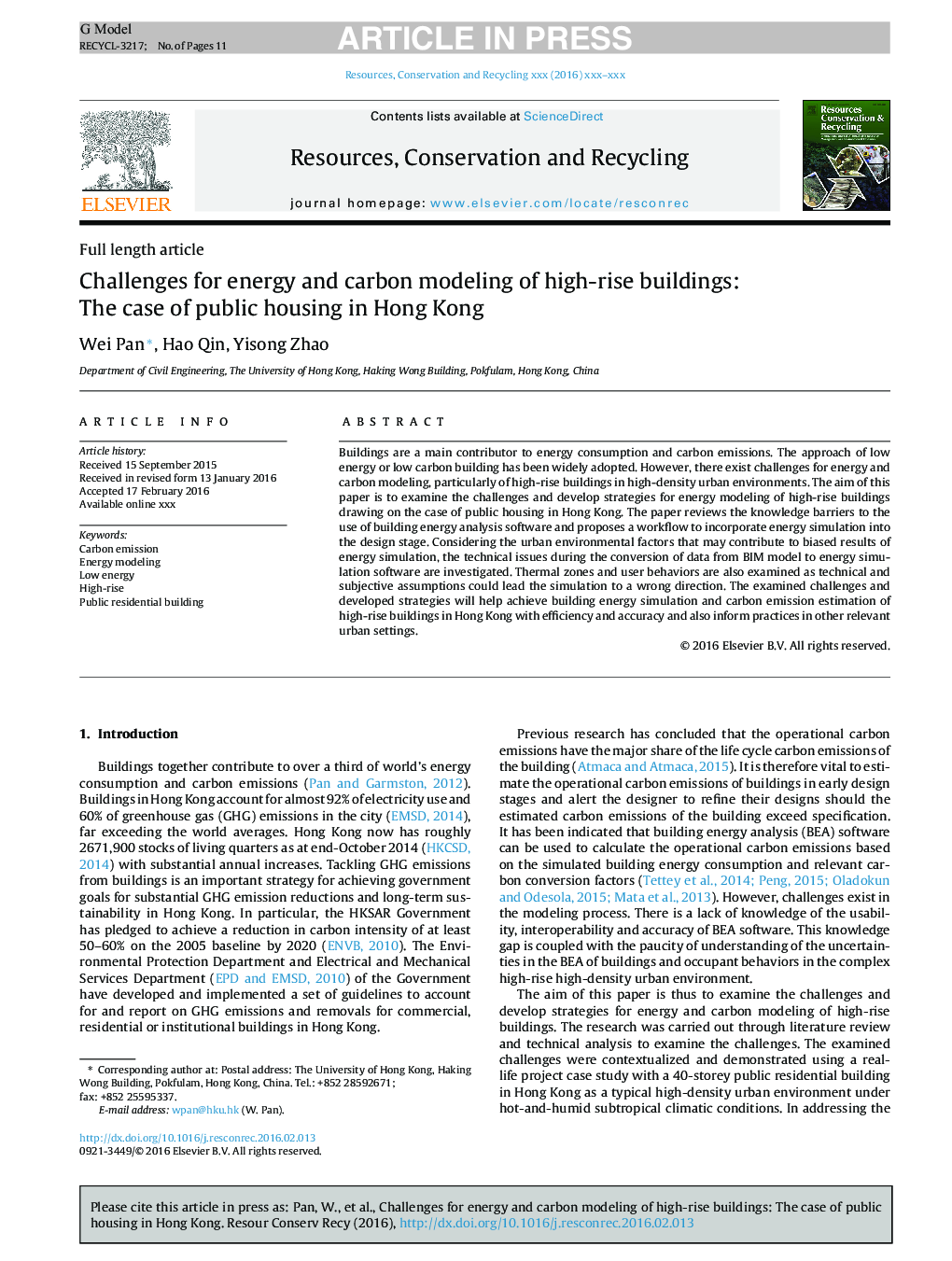| Article ID | Journal | Published Year | Pages | File Type |
|---|---|---|---|---|
| 5118834 | Resources, Conservation and Recycling | 2017 | 11 Pages |
Abstract
Buildings are a main contributor to energy consumption and carbon emissions. The approach of low energy or low carbon building has been widely adopted. However, there exist challenges for energy and carbon modeling, particularly of high-rise buildings in high-density urban environments. The aim of this paper is to examine the challenges and develop strategies for energy modeling of high-rise buildings drawing on the case of public housing in Hong Kong. The paper reviews the knowledge barriers to the use of building energy analysis software and proposes a workflow to incorporate energy simulation into the design stage. Considering the urban environmental factors that may contribute to biased results of energy simulation, the technical issues during the conversion of data from BIM model to energy simulation software are investigated. Thermal zones and user behaviors are also examined as technical and subjective assumptions could lead the simulation to a wrong direction. The examined challenges and developed strategies will help achieve building energy simulation and carbon emission estimation of high-rise buildings in Hong Kong with efficiency and accuracy and also inform practices in other relevant urban settings.
Related Topics
Physical Sciences and Engineering
Energy
Renewable Energy, Sustainability and the Environment
Authors
Wei Pan, Hao Qin, Yisong Zhao,
